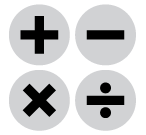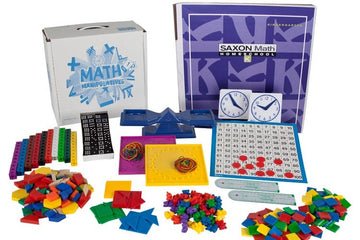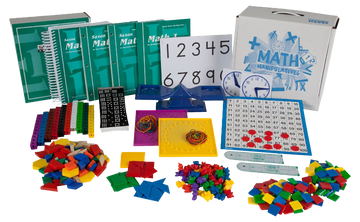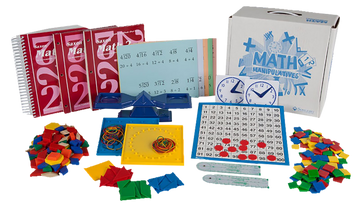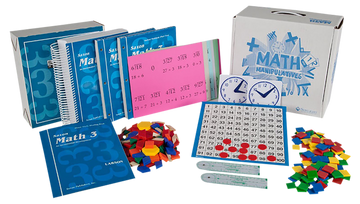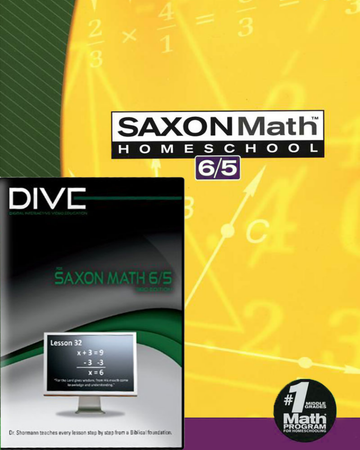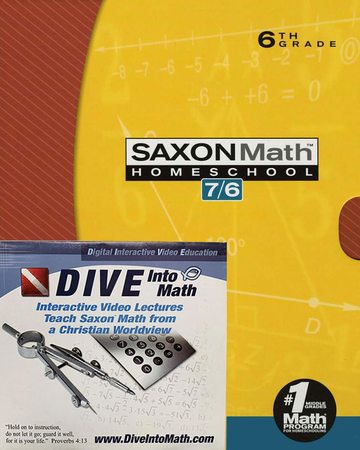Saxon Math: Homeschool Curriculum, Courses & Placement Test
Students using Saxon Math homeschool kits earn consistently high scores on standardized tests. The program is extremely strong in areas of arithmetic computation and mathematical principles (distributive, commutative, etc.).
Saxon takes an incremental (little by little) approach to math, introducing a new skill or principle each day, then reviewing these concepts and skills day after day for weeks. This approach helps build students' confidence in their ability to "do" math successfully.

Shop By Program
Browse all Saxon Math programs, from kindergarten through high school.
Shop All Saxon Math
Browse all Saxon Math products, from kindergarten through high school.
Learn More
Learn more about Saxon Math, the advantages and disadvantages of the program, and what makes it unique.
$269.70
$269.70
$291.15
$291.15
$333.85
$338.45
$344.75
Shop All Saxon Math Products
Visit our Saxon Math store page to shop individual Saxon programs, manipulatives, workbooks and more.
How does Saxon Math ensure that students are mastering concepts?
Saxon Math is based on the idea of incremental development, which is the belief that students should learn math concepts in small, manageable steps, with each lesson building on the previous one. With this spiral approach to learning, students should master a concept before moving on to the next one. Saxon Math is known for this repetition and cumulative review, which is designed to help students retain and understand concepts. See below for a complete list of topics covered in each level of Saxon Math.
- Math K
- Counting, shape recognition, days, month, year & dates, time to the hour, ordinals, & more.
- Math 1
- Compare & order numbers, ordinal position to tenth place, patterns, basic addition, subtraction, two-digit numbers, measuring, time, & more.
- Math 2
- Add and subtract two-digit numbers, multiplication facts to 5, picture and name fractions, identify geometric solids, identify angles, tally, Venn diagrams, and more.
- Math 3
- Basic addition, subtraction, multiplication, and division facts, subtract multidigit numbers, divide by single-digit divisors, positive and negative numbers, and more.
- Math 5/4
- Multiplication and division terms, powers and beginning square roots, fractions to decimals and percents, basic algebraic patterns and sequences, and more.
- Math 6/5
- Mental math, patterns and functions, statistics & probability, fractions, decimals, percents, geometry, negative numbers, & more.
- Math 7/6
- Simple expressions containing parentheses, add, subtract, multiply, & divide signed numbers, exponents, square roots, geometric formulas, & more.
- Math 8/7
- Measurement, estimation, powers and roots, scientific notation, graphing functions, balancing equations, irrational numbers, geometric construction, and more.
- Algebra 1/2
- Covers the topics taught in pre-algebra, plus topics from geometry and discrete mathematics.
- Algebra 1
- Covers topics typically treated in a first-year Algebra course.
- Algebra 2
- Not only treats topics that are traditionally covered in second-year Algebra, but also covers a considerable amount of Geometry.
- Advanced Math
- Topics from Algebra, Geometry, Trigonometry, discrete mathematics, and mathematical analysis.
